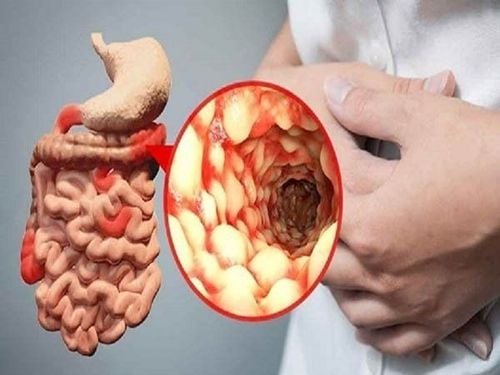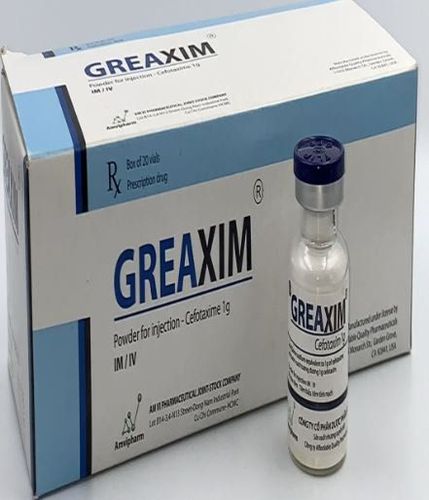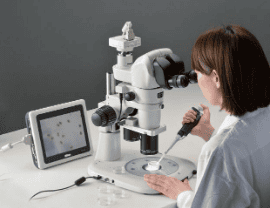This is an automatically translated article.
Posted by Master, Doctor Mai Vien Phuong - Department of Examination & Internal Medicine - Vinmec Central Park International General Hospital
Crohn's disease is a chronic inflammatory bowel condition that leads to abdominal pain, severe diarrhea, fatigue, weight loss, and malnutrition. In particular, Jews are a high-risk group for Crohn's disease.
1. What is Crohn's disease?
Crohn's disease is an inflammatory bowel disease with symptoms such as severe abdominal pain, fatigue, severe diarrhea, weight loss, and malnutrition.
Ashkenazi Jews (plural: Ashkenazim) are of Central and Eastern European origin. This particular population is a high-risk group for Crohn's disease. According to experts, Crohn's disease is two to four times more common in people with Ashkenazi ancestry than in people with non-Jewish European ancestry.
Over the years, the Ashkenazi population is decreasing. This has created a genetic structure unique to Ashkenazi, which also leads to a higher incidence of many genetic diseases.
In addition to Crohn's disease, other diseases include:
Tay-Sachs disease Gaucher disease Bloom syndrome Idiopathic torsion dystonia Familial dysfunction
2. Symptoms of Crohn's Disease
Crohn's disease has different symptoms depending on the digestive tract it affects. The two areas most commonly affected are the ileum (the last part of the small intestine) and the colon (which is part of the large intestine). Symptoms usually develop over time, but can also come on suddenly.Crohn's disease can fluctuate between periods of active disease (many symptoms) and remission (no symptoms). Some common symptoms include:
Diarrhea Tiredness Fever Pain and cramps in the abdomen Bloody stools Mouth sores Weight loss and loss of appetite Perianal ulcers and abscesses Inflammation of the skin, eyes, joints, liver or tubes bile Growth retardation or puberty (in children) You should see your doctor if you experience these symptoms or have other changes in your bowel habits.

3. Stages of Crohn's Disease
Most people with Crohn's disease have cycles of flare-ups and remissions. Symptoms associated with GI inflammation are at their worst during a Crohn's disease flare. In remission, people with Crohn's feel pretty normal.Common symptoms of a Crohn's flare include:
Abdominal pain (often worse after meals) Diarrhea Painful bowel movements Blood in the stools Weight loss Anemia Fatigue According to Aline Charabaty - Center Director Inflammatory bowel disease at MedStar Georgetown University Hospital, Crohn's disease can also have other manifestations such as joint pain, eye inflammation, and skin lesions.
4. No one knows exactly what causes Crohn's disease
The specific cause of Crohn's disease is unknown. Most researchers believe that the disease is the result of a combination of factors. These factors include the interaction of three things:
Genetic or genetic factors Environmental triggers, such as medications, pollution, overuse of antibiotics, diet and infection A shy immune system begins to attack its own GI tissue Much research is being done around the link between environmental factors and Crohn's disease.
Also, smoking can make symptoms worse
There may be a link between smoking and Crohn's disease. Not only does smoking cause people to have worse or more frequent symptoms, but some data suggests that smoking may even increase the likelihood of developing Crohn's disease.
Smoking has been reported to affect disease severity, with smokers having a higher relapse rate, says Akram Alashari, surgeon and critical care physician at the University of Florida. 34% higher than non-smokers.
5. Effects of Crohn's Disease
Crohn's disease usually appears in a person at a young age and continues to affect them throughout life. As a result, the disease can affect even the healthiest people. Not only can symptoms become debilitating, but people with Crohn's also often need to see a doctor, have tests, and have a variety of procedures. Between symptoms and regular appointments, quality of life can be severely impacted.6. What causes Crohn's disease?
The exact cause of Crohn's disease is unknown. However, the medical community believes that the condition is an abnormal immune response to gut bacteria. This leads to inflammation of the digestive system. Crohn's disease is now suspected to be hereditary because of its connection to the immune system.
One study measured the risk of Ashkenazim getting the disease. The researchers examined the genetic makeup of a group of Ashkenazi people with Crohn's disease and a group without the disease. They then identified suspected risk factors for Crohn's in two groups.
They found 16 regions in the DNA code and three genetic mutations common in people of Ashkenazi descent that may be associated with an increased risk of Crohn's disease. Some studies suggest a gene mutation that is thought to cause Crohn's disease in Ashkenazim.
Genetic relationships
Human chromosomes contain genetic material that helps provide instructions for how the body works. Humans have 46 pairs of chromosomes in their cells, inherited from both parents. Variations that occur in chromosomes can lead to bodily malfunction or an increased risk of disease. Variations in an individual's genetic material can be passed on and cause genetic diseases in later generations.
Heredity is only one suspected cause of Crohn's disease. Experts are also exploring the possibility of a virus or bacteria. Although environmental factors are not known in cases of Crohn's, they can make symptoms worse.
These factors include:
Diet Pollution Stress Smoking Family history may play a part
If you have a family history of irritable bowel disorder, you may be more at risk develop Crohn's disease. However, most people with Crohn's disease have no family history. That's why researchers believe the environment can play an important role in understanding the disease.
7. Can Crohn's Disease Be Prevented?
There is currently no cure for Crohn's disease and no treatment that works for all patients. However, you can manage the symptoms associated with this condition. Common treatments for Crohn's disease include medications, therapies to manage stress, and dietary and lifestyle changes. These treatments can help you feel more comfortable living with Crohn's disease.
Please dial HOTLINE for more information or register for an appointment HERE. Download MyVinmec app to make appointments faster and to manage your bookings easily.
References source: Jewish genetic diseases, mayo clinic staff. (2014, August 13). Diseases and conditions: Crohn's disease.














